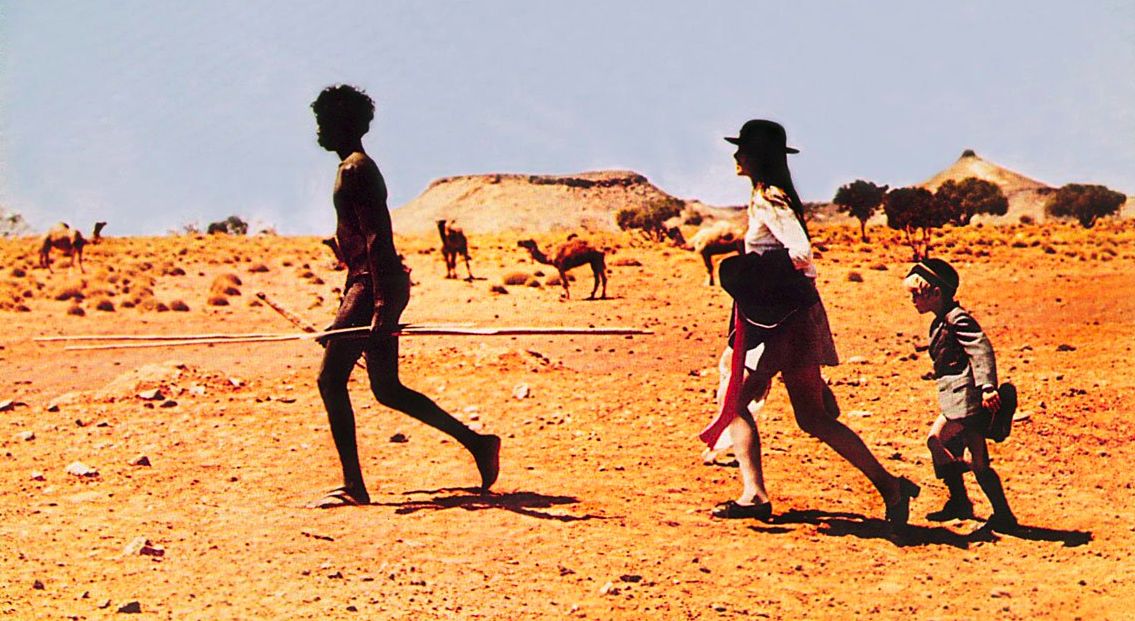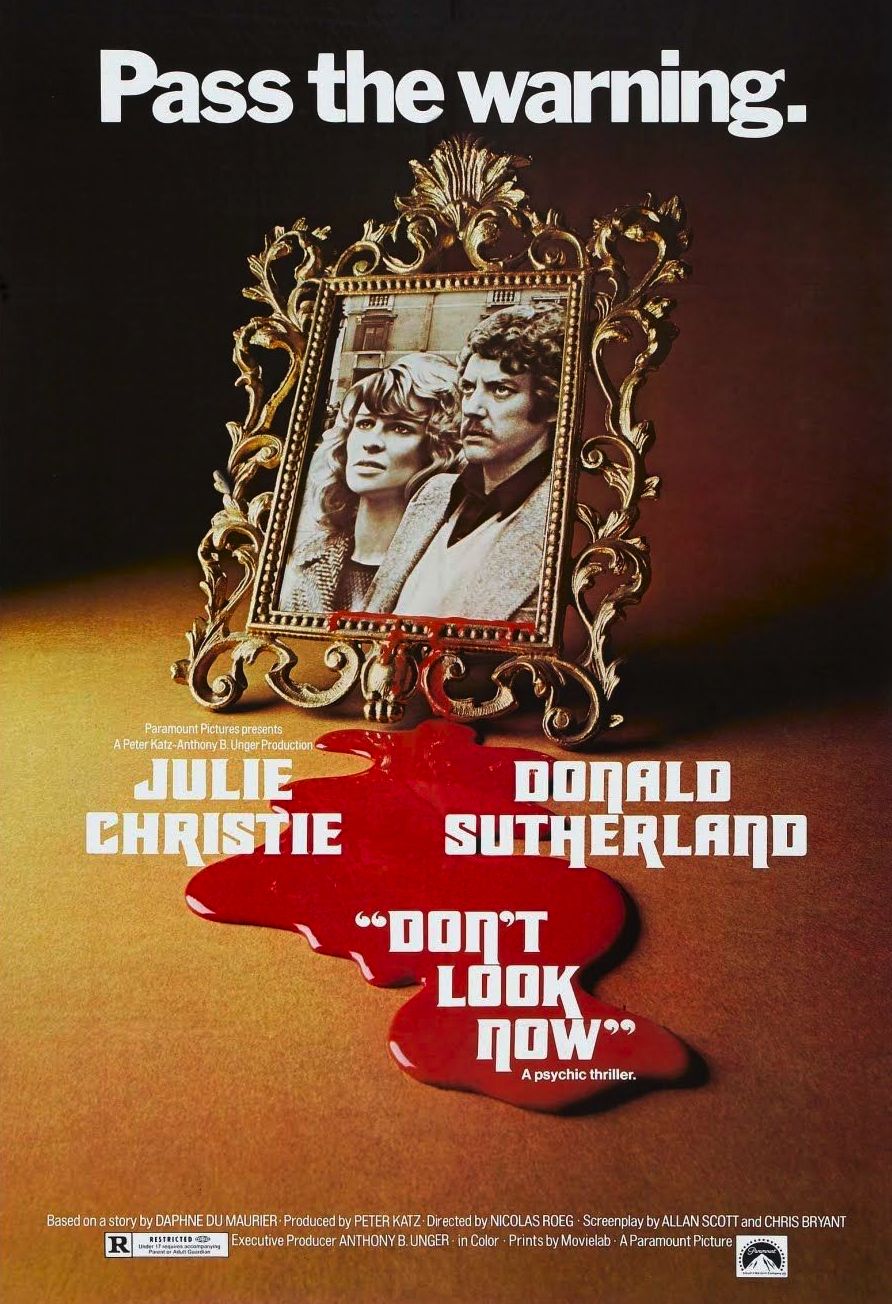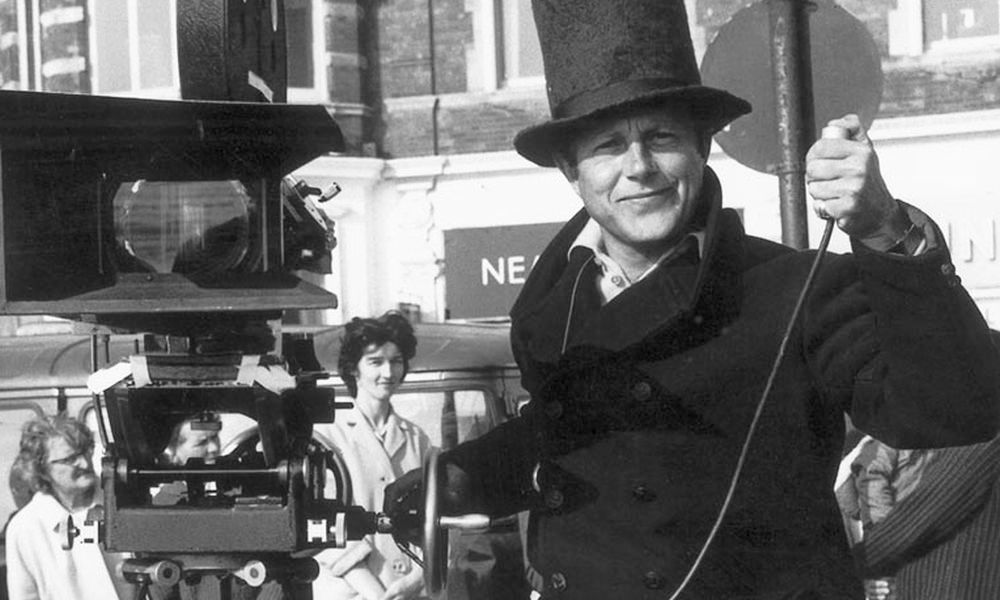"Amid the general gloom of 1970s British cinema, Nicolas Roeg seemed to represent one of the few real chinks of light. A gifted cinematographer, he moved to directing and quickly established a reputation as a distinctly personal film-maker. With their jagged cutting and disconcerting time shifts, his films didn't look like the work of any one else and their dark themes of destructive sexuality and confused identity made them sharply provocative." - Robert Shail (British Film Directors: A Critical Guide, 2007)
Nicolas Roeg
Key Production Countries: UK, USA
Key Genres: Drama, Psychological Drama, Adventure, Adventure Drama, Satire, Thriller
Key Collaborators: Tony Lawson (Editor), Stanley Myers (Composer), Theresa Russell (Leading Actress), Allan Scott (Screenwriter), Jeremy Thomas (Producer), Anthony B. Richmond (Cinematographer), David Brockhurst (Production Designer), Paul Mayersberg (Screenwriter), Rick McCallum (Producer), Harvey Harrison (Cinematographer), Alex Thomson (Cinematographer), Graeme Clifford (Editor)
Key Genres: Drama, Psychological Drama, Adventure, Adventure Drama, Satire, Thriller
Key Collaborators: Tony Lawson (Editor), Stanley Myers (Composer), Theresa Russell (Leading Actress), Allan Scott (Screenwriter), Jeremy Thomas (Producer), Anthony B. Richmond (Cinematographer), David Brockhurst (Production Designer), Paul Mayersberg (Screenwriter), Rick McCallum (Producer), Harvey Harrison (Cinematographer), Alex Thomson (Cinematographer), Graeme Clifford (Editor)
"Nicolas Roeg is one of the romantics of modern cinema. His early career was a veritable pilgrim's progress through the industry... Roeg once described cinema as a "time machine" and his reputation is founded on an adventurous play with temporality and desire, a phantasmagoria of choppy time frames and unanchored visions. The results have varied from visionary to self-indulgent... Roeg remains one of the last links that modern British cinema retains with the experimentalism of 1960s European cinema." - Richard Armstrong (The Rough Guide to Film, 2007)
"A former clapper boy, lighting cameraman and cinematographer who belatedly moved into directing, Roeg never seemed totally at ease in front of the camera (or, perhaps more accurately, beside it). His visuals are often wonderful, but his later scripts can be woeful, particularly in the case of Eureka (1983)...I f this all sounds unduly critical, it shouldn't be taken as such, for Roeg's standards and his expectations of himself are high, and his is a genuinely eclectic talent which can provoke, puzzle and satisfy in roughly equal measures." - Mario Reading (The Movie Companion, 2006)

Walkabout (1971)
"Nicolas Roeg is a visual trickster who plays havoc with conventional screen narratives. Choosing an oblique storytelling formula, he riddles his plots with ambiguous characters, blurred genres, distorted chronologies, and open-ended themes to invite warring interpretations." - Joseph Lanza & Rob Edelman (The St. James Film Directors Encyclopedia, 1998)
"Nicolas Roeg… didn’t just bend the medium of film to his will. He broke it, splintered it, and sutured it back together. He was a like a surgeon gifted with second sight, and his movies would have probably died on the operating table with anybody else in charge. A former cinematographer who left his mark in several different areas of 1960s cinema—doing unit work for David Lean on Lawrence of Arabia; shooting Fahrenheit 451 for François Truffaut and The Masque of the Red Death for Roger Corman—Roeg had an undeniable eye for color and composition. But it was his attention to editing that made him a legend. His movies were jagged jigsaw puzzles that the viewer had to try to put together in real time; at their best, the pieces added up not to a complete picture but a kind of Rorschach test." - Adam Nayman (The Ringer, 2018)
"From his directing debut Performance (made with Donald Cammell) onwards, Roeg deployed a fragmented, associative editing style to shift between reality and fantasy, fear and desire, past, present, and future in diverse genres... Excepting Walkabout and Don't Look Now, the results, while intriguing, have often lacked coherence; the narrative complexity and bold, baroque images can seem a gloss imposed on conventional stories." - Geoff Andrew (The Director's Vision, 1999)
"Roeg is perfectly comfortable with more traditional storytelling. But it is as the virtuoso explorer of unconventional narrative forms that he made a lasting contribution to contemporary cinema." - The Film Encyclopedia, 2012
"A director of exotica, mood, and place, Roeg must learn to handle narrative with more assurance." - William R. Meyer (The Film Buff's Catalog, 1978)
"Movies are not scripts - movies are films; they're not books, they're not the theatre. It's a completely different discipline, it exists on its own. I would say that the beauty of it is it's not the theatre, it's not done over again. It's done in bits and pieces. Things are happening which you can't get again. I forbid anyone to say "Cut", the soundman, the operator, or whatever." - Nicolas Roeg (The Guardian, 2005)
Selected Filmography
{{row.titlelong}}
GF Greatest Films ranking (★ Top 1000 ● Top 2500)
21C 21st Century ranking (☆ Top 1000)
T TSPDT R Jonathan Rosenbaum
21C 21st Century ranking (☆ Top 1000)
T TSPDT R Jonathan Rosenbaum
Nicolas Roeg / Fan Club
Edgar Wright, Dominik Graf, Paul Schrader, Andrew Haigh, Asif Kapadia, Mark Kermode, Stephen Thrower, Richard Kuipers, Mehmet Açar, Neil Young, Lynne Ramsay, David Ehrenstein.
Edgar Wright, Dominik Graf, Paul Schrader, Andrew Haigh, Asif Kapadia, Mark Kermode, Stephen Thrower, Richard Kuipers, Mehmet Açar, Neil Young, Lynne Ramsay, David Ehrenstein.
"Fan Club"
These film critics/filmmakers have, on multiple occasions, selected this director’s work within film ballots/lists that they have submitted.
These film critics/filmmakers have, on multiple occasions, selected this director’s work within film ballots/lists that they have submitted.


